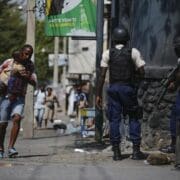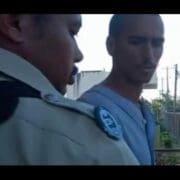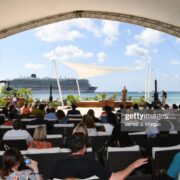Black Immigrant Daily News
The writer is Antigua and Barbuda’s Ambassador to the U.S. and the OAS. He is also a senior fellow at the Institute of Commonwealth Studies at the University of London and at Massey College in the University of Toronto. The view expressed are entirely his own.
By Sir Ronald Sanders
Authoritative international bodies – among them, the respected Institute for Democracy and Electoral Assistance (IDEA) – have concluded that “democracy is under both literal and figurative assault around the world.” The countries of the Caribbean have not been exempted from this judgement which is based on more than a decade of studies.
In the Americas (Canada and US, Central and South America and the Caribbean), there has been a rise in undemocratic governance as in Haiti and Nicaragua – both of which are teetering on the brink of disaster. In other countries in Latin America, there have been setbacks, particularly in Peru. Established democracies have also experienced decline. These were particularly severe in Brazil and the US, where current administrations are battling to overcome the legacies of the previous administrations.
Against this background, indications, from the governing and opposition representatives in the elected national assembly of Antigua and Barbuda, that the fundamental principles of democracy remain strong and respected, are welcomed.
On January 18, general elections, which were judged to be free and fair by several international observer groups, were held in Antigua and Barbuda. There was a vigorous campaign that resulted in the ruling Antigua and Barbuda Labour Party (ABLP) sliding from a 15-2 majority in the National Assembly to a one-seat majority. The ABLP won 9 of the 17 parliamentary seats; the main opposition party, the United Progressive Party (UPP) won 6 seats; the separatist Barbuda Peoples’ Movement won 1; and for the first time in Antigua’s history, an independent candidate, who was a former member of the ABLP, was elected.
The forceful nature of the election campaign and the resultant one seat majority in the National Assembly, led to the view by commentators, in and out of Antigua and Barbuda, that the stage had been set for a possible disruption of the democratic process, including civil disorder.
However, any such expectation was dispelled when the National Assembly convened from March 9 to 14 to debate the national budget that the Antigua and Barbuda Prime Minister, Gaston Browne, presented on March 2. The elected representatives of the UPP, while five of them were new, put forward their arguments firmly, but with respect for parliamentary rules. For their part, the government representatives, especially the young, lone woman elected member, Maria Browne, laid out their detailed plans and responded in a mature manner to the heckling of the opposition representatives.
The result was a pellucid articulation of the differences on how issues should be addressed; proposals on areas that require priority attention; and evidence that the National Assembly will be a forum for forceful debate on the policies and programmes that the governing party intends to pursue.
These circumstances are good for democracy in Antigua and Barbuda at a time when global challenges are impacting every country in the world, calling for an inclusionary approach to governance.
The political campaign, for general elections in Antigua and Barbuda, was held amid global political and economic instability, including the escalation of prices for food and energy, increasing inflation, high interest rates for borrowing, and decreased access to financing.
These phenomena occurred – and are persisting – alongside enduring effects of climate change, attempts to recover from the economic impact of the Covid-19 pandemic, and the continuing global uncertainty caused by the Russian war of aggression on Ukraine.
All this holds consequences for democratic governance. Popular dissatisfaction over high prices, low employment, and non-inclusionary decision-making, in any country, could result in protests and other acts of civil strife.
In Antigua and Barbuda’s case, the country is benefitting from a continuous growth of the economy (8.5 per cent in 2022, and a projected 9.4 percent for 2023); increasing employment; and significant private sector investment in tourism, construction and physical infrastructure, hefty outlays by the government in health and education, and an abiding respect for democracy, including freedom of speech, free and fair elections, and a strict separation of powers between the government, the legislature and the courts.
But while sound economic performance and respect for democratic principles and values have contributed to stability in Antigua and Barbuda, in many countries around the globe, “the ability to provide key public goods to their citizens and to close the gap between social expectations and institutional performance is increasingly at risk”, as IDEA points out in its 2022 report on democracy in the world.
The world is at a critical crossroad. Given the current global uncertainties, which include a possible recession, governments in democratic countries are under pressure to deliver the goods and services their people expect. Unlike authoritarian regimes, which are backed by military might to enforce their will, governments in democratic states have to form a new social contract with their populations, including their representative bodies in every sector.
Any who choose an authoritarian path, have to be conscious that, in countries where authoritarian regimes rule, there has been an exodus of talented and trained persons, economic decline, and a high dependence on the military to repress dissatisfied people. Authoritarianism, therefore, ought not to be an option for any nation that wants peaceful progress.
As part of a social contract to preserve democracy as a platform for progress of the individual, the society and the economy, international bodies strongly suggest that governments, political parties, private sector, civil society, media, expert groups, and academics have a role to play.
The hardest part of all this is how to encourage political parties to regard constructive participation in a national dialogue as an acknowledgment of their roles as representatives of the people, rather than as agencies for discrediting each other.
Yet, it is in constructive and inclusionary dialogue that national plans for peace, progress and prosperity can be best fashioned. Unreasoned division and brinksmanship to promote party political advantage is a certain prescription for national failure and the erosion of democracy.
Hopefully, political parties throughout the Americas, including the Caribbean, can agree to fashion with other partners in civil society, a relevant social contract for national progress that can carry countries successfully through the present global turmoil and beyond.
Donate At Caribbean News Service, we do not charge for our content and we want to keep it that way. We are seeking support from individuals and organisations so we can continue our work & develop CNS further.
NewsAmericasNow.com









